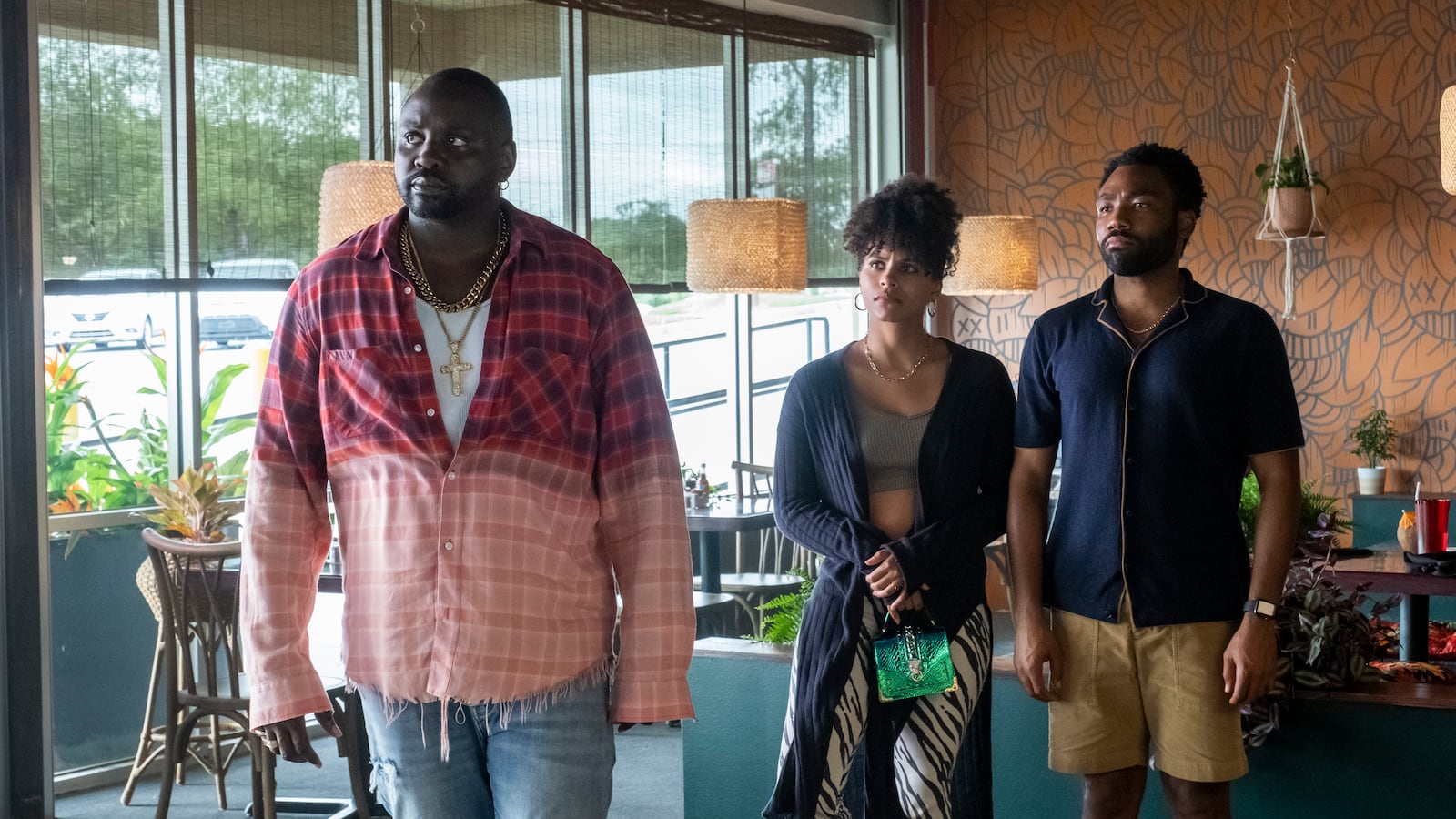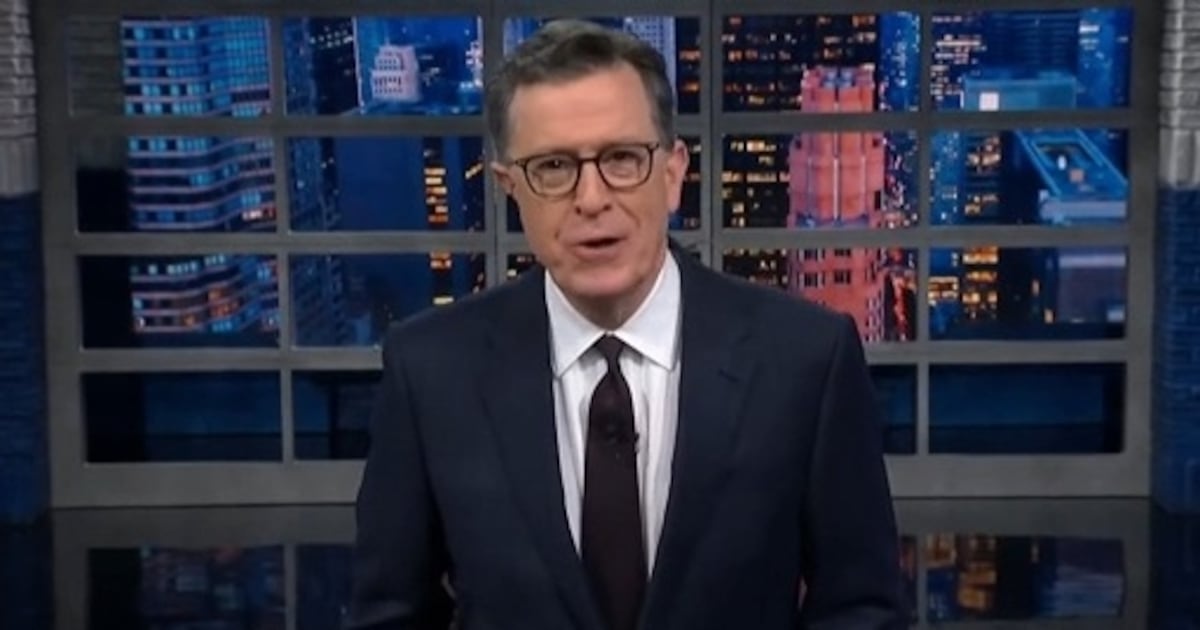Alas, one of the greatest television shows of the past decade has finally come to an end. After four seasons spread across six years, Atlanta aired its series finale tonight with none other than an ode to one of the greatest corporate establishments and makers of the spicy chicken sandwich, Popeyes.
Written by show creator Donald Glover and directed by Hiro Murai, “It Was All a Dream” is carried out with the same level of confidence and self-indulgent humor as some of Atlanta’s most impressive offerings, like Season 1’s “B.A.N.” or Season 2’s “Barbershop.” Refreshingly, the finale is void of any grand statements or overwrought moments, a tendency that made Season 3 a surprising low point for the typically well-crafted show.
Instead, like most of Season 4, we simply observe Earn (Glover), Al (Brian Tyree Henry), Van (Zazie Beetz) and Darius (LaKeith Stanfield) navigate seemingly mundane scenarios that become increasingly surreal and bizarre. The biggest development this season is that Earn is moving to Los Angeles with Van and Lottie to further his aspirations of becoming a big-time talent manager. And yet, we don’t end on a tearful goodbye between Earn and his cousin Al, but a very low-stakes moment of joy.
Given Atlanta’s contributions to Black television and the medium as whole, the series has earned the right to end on such a chill vibe.
We open with a shot of Judge Judy playing on a television screen in what is presumably Al’s swanky, modern home. (This is foreshadowing for a ridiculous running gag). The camera zooms in on Darius as he’s resting on a couch listening to Amnesty’s “Liberty” through headphones. The song’s lyrics (“Lift yourself up on your feet/Let’s get it on/We’ve been foolin’ around, my friends, for much too long”) suggests a long-awaited pivotal moment for Darius, arguably the show’s most dormant and aimless character. However, Glover continues to use Darius for his surrealist fantasies, trapping him in a time loop during a “dep date” (a sensory deprivation tank session).
One of his dreams includes a trip to the pharmacy for his ill brother. There, he chats with a friendly woman (played by Cree Summer) who previously used isolation tanks for her anxiety, until she began confusing reality with what she envisioned in the tank. Darius tells her that he can differentiate real life from the tank with a special mind trick: thick Judge Judy. “The idea is that Judge Judy’s always on TV, right?” he explains. “And if I see her and she’s thick, I know I’m in the tank.”
Unfortunately, this insane image doesn’t rescue him from a series of nightmares, including a random encounter with an old female friend who’s been “micro-dosing” vodka from a water bottle all day. When Darius hops in for a ride, she’s pulled over by a cop for having tinted windows and asked if she’s been drinking. In one of the funniest moments in the episode, she downs the entire liter of vodka to prove that it’s just water but is still forced to do a sobriety test. After the cop miraculously lets her off the hook, she grabs the cop’s gun while he’s not looking and speeds off in the car, hitting a cyclist. She exits the car and runs, leaving Darius with the gun. Thankfully for our favorite stoner, it was all just a dream.
While Darius continues to experience Groundhog Day at a spa, Earn and Al meet Van for lunch at a struggling Black-owned sushi restaurant that one of her friends invested in. We get the impression that this is an extremely sketchy establishment when Earn has to park their car and pay for a valet to essentially hold his keys. When Al realizes it’s the same location as an old Blockbuster, we see the famous VHS-shaped marquee still plastered on the building.
As soon as they sit down in the restaurant, which looks like someone’s chinoiserie-themed basement, it’s clear why they’re the only patrons. A host hands them satin bandanas for napkins that look like they were purchased at the neighboring beauty supply store, and a waiter offers them hot white Hennessy in a teapot. When Al leaves to use the bathroom, he discovers that it’s actually in the Rainbow down the street. The final straw is when they’re offered poisonous blowfish.

Meanwhile, right outside the window is a free-standing Popeyes where Al and Van are tempted to eat instead. But Earn is passionate about supporting Black-owned businesses, whether the quality of the food is good or terrible. It’s a familiar conflict for Black people, who often feel the most pressure to financially support our business ventures, as if our collective pockets as a minority are enough to sustain a separate Black economy. But sometimes, the promise of a reliable service from a more established business trumps the urge to do the “woke” thing. There’s also the fact that supporting a company is not always the same as supporting people.
Likewise, the trio eventually decide that their act of charity isn’t worth the awful service they receive and opt to leave the sushi joint. Unfortunately, the restaurant is run by an extremely menacing owner, who gives them an exasperating (but hilarious) lecture, lamenting Black people’s pickiness when it comes to Black businesses versus white ones.

After a long monologue defending his right to run a mediocre establishment, the owner tells this workers to lock the doors and pressures Earn into trying the blowfish. Luckily, Darius, who thinks he’s still in an isolation tank, arrives out of nowhere to save the day, bursting through the window and attacking the owner. Earn, Al, and Van hop in a pink Maserati he stole from the valet and finally order their precious salty biscuits from Popeyes.
One of the final shots of the episode is the core crew gleefully holding onto their Popeyes while they speed down an empty road with the car rooftop down. It’s an equally hysterical and beautiful image—a representation of the show’s commitment to catering to a Black audience, first and foremost, and in the funniest way. I can’t think of a Blacker note to end on.






